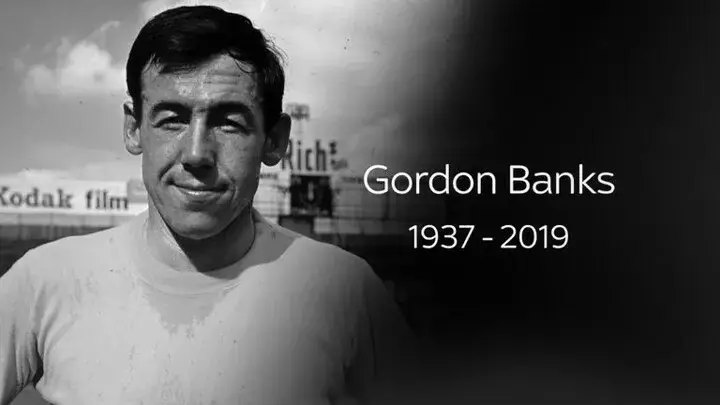The Legendary Goalkeeper A Look at the Career of Gordon Banks

Gordon Banks is a name that echoes through the halls of English football history. Known for his incredible goalkeeping skills and incredible saves, Banks has become a legendary figure in the world of football. From humble beginnings to becoming one of the most iconic figures in the sport, Banks’ journey is nothing short of remarkable. In this blog post, we will take a closer look at the career of Gordon Banks, his impact on modern goalkeeping, and his enduring legacy.
The Rise of Gordon Banks in English Football
Born in Sheffield, England in 1937, Gordon Banks grew up with a love for football. As a young boy, he would often play in the streets and fields near his home, honing his skills and dreaming of one day playing for his country. At the age of 15, Banks joined Chesterfield, a local football team, as an amateur player. His talent was evident from the start, and soon he caught the attention of bigger clubs.
In 1958, Banks signed for Leicester City, where he would spend the majority of his professional career. He quickly established himself as a top-class goalkeeper, earning the nickname “The Banks of England” for his impressive saves and commanding presence on the field. He helped Leicester City win the FA Cup in 1964, and his performances caught the eye of the English national team manager, Alf Ramsey.
In 1963, Banks made his debut for the England national team and went on to become their first-choice goalkeeper. He played a crucial role in qualifying for the 1966 World Cup, which would prove to be a defining moment in Gordon Banks’ career.
Remembering Gordon Banks: His Greatest Saves
When talking about Gordon Banks, it’s impossible not to mention his incredible saves. He had lightning-fast reflexes, excellent positioning, and an instinctual understanding of the game. His saves were so remarkable that they have become a part of football folklore, and even today, they are referenced as examples of perfect goalkeeping.
One of Banks’ most famous saves came in the 1970 World Cup against Brazil. In a group stage match between England and Brazil, Pele, one of the greatest footballers of all time, headed a powerful shot towards the goal. It seemed like a sure goal, but Banks managed to get his fingertips on the ball and push it over the crossbar. This save is considered by many to be one of the best in football history, and it solidified Banks’ reputation as an exceptional goalkeeper.
Another memorable save came in a match against West Germany in 1966. With only minutes remaining, Banks made an incredible reflex save to deny a header from Helmut Haller, preserving England’s lead and ultimately securing their victory in the World Cup final. This save is often referred to as the “Save of the Century” and is a testament to Banks’ incredible abilities as a goalkeeper.
In total, Banks made over 73 appearances for the England national team, and his saves and performances on the field will forever be remembered by football fans around the world.
The Legacy of Gordon Banks: An Iconic Figure in Football
After retiring from professional football in 1973, Banks remained involved in the sport, working as a coach and commentator. But it was not just his on-field achievements that solidified his status as a football legend. Banks was also known for his humility, sportsmanship, and dedication to the game.
He became a role model for young players, inspiring them to work hard, stay focused, and never give up on their dreams. Even after his passing in 2019, his legacy continues to live on, with many current and former players paying tribute to him and his impact on the sport.
Banks has also been recognized in various ways, including being inducted into the English Football Hall of Fame and having a statue erected in his honor at Stoke City’s stadium, where he ended his career.
Gordon Banks and the 1966 World Cup: A Historic Victory
The 1966 World Cup is an event that will forever be tied to Gordon Banks. As the first-choice goalkeeper for England, he played an instrumental role in their historic victory, making crucial saves and leading the team to triumph.
Banks’ performances in the tournament were nothing short of exceptional. He only conceded three goals in six matches, and his saves in the final against West Germany were crucial in securing England’s 4-2 win. His contributions to the team were recognized when he was awarded the FIFA World Cup Golden Glove, given to the best goalkeeper of the tournament.
But it wasn’t just his goalkeeping abilities that made Banks stand out during the 1966 World Cup. He also played a crucial role in creating a sense of unity and camaraderie within the team. His humble nature, combined with his leadership skills, helped bring the players together and contributed to their success.
The Tragic Accident that Ended Gordon Banks’ Career
Unfortunately, Banks’ career was cut short by a tragic accident in 1972. While playing for Stoke City, Banks was involved in a car crash that left him blind in one eye. Despite attempts to continue playing, he ultimately retired from professional football at the age of 34.
The accident not only ended Banks’ career but also had a significant impact on him personally. However, despite losing his eyesight in one eye, Banks continued to remain positive and focused on helping others. He established the Gordon Banks Sports Centre, which provided opportunities for young people to take part in various sports.
Banks’ perseverance and determination in the face of adversity are just another testament to his character and legacy in the world of football.
Gordon Banks: From Humble Beginnings to Football Greatness
One of the things that make Gordon Banks’ story so inspiring is his humble beginnings. He grew up in a working-class family, and football was a way for him to escape the challenges of daily life. His success on the field is a testament to his hard work, dedication, and talent.
Throughout his career, Banks never forgot where he came from, and he always remained grounded and focused on the sport he loved. This is something that has resonated with fans and fellow players alike, making him an icon not just in English football but also on a global scale.
The Impact of Gordon Banks on Modern Goalkeeping
Gordon Banks’ impact on goalkeeping goes far beyond his incredible saves and achievements. He revolutionized the position and set a new standard for what it means to be a goalkeeper. His quick reflexes, athleticism, and ability to read the game were unparalleled, and they continue to inspire young goalkeepers today.
Banks’ techniques and strategies have been studied and emulated by many goalkeepers, and his legacy lives on in the modern game. His influence can be seen in the likes of David De Gea, Manuel Neuer, and Thibaut Courtois, all top-class goalkeepers who have cited Banks as one of their inspirations.
Gordon Banks: A Role Model for Aspiring Footballers
Aside from his incredible skills on the field, Gordon Banks was also known for his character and sportsmanship. His humility, dedication, and passion for the game have made him a role model for aspiring footballers around the world.
Banks’ story shows that with hard work, determination, and perseverance, anything is possible. He overcame obstacles and setbacks throughout his career, but he never let them deter him from achieving his goals. For young players dreaming of a career in football, Banks is the perfect example of what can be achieved with talent and determination.
Celebrating the Life and Achievements of Gordon Banks
In 2019, Gordon Banks passed away at the age of 81, leaving behind a legacy that will never be forgotten. His passing was met with an outpouring of tributes and messages from football fans, players, and organizations around the world.
Today, we celebrate the life and achievements of Gordon Banks, a true legend of English football. From his humble beginnings to becoming one of the greatest goalkeepers of all time, his story is one that will continue to inspire future generations.
Conclusion
Gordon Banks’ journey is one that will forever be remembered in the world of football. Beyond his incredible saves and achievements on the field, he was a role model, leader, and icon who left an indelible mark on the sport. From the streets of Sheffield to the heights of World Cup glory, his story is a testament to the power of hard work, dedication, and passion. Banks may no longer be with us, but his legacy lives on through his performances, his impact on modern goalkeeping, and his enduring influence on the sport he loved.








